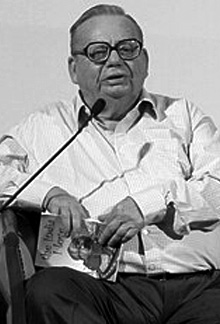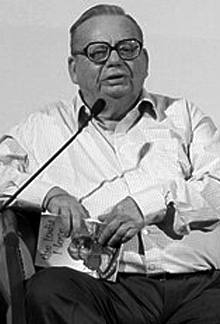The transition from an English father to a Punjabi …– Ruskin Bond

The transition from an English father to a Punjabi stepfather demanded an adjustment that was far from easy for a 10-year-old boy who had just lost his father.
In the ’50s, ’60s, ’70s…– Ruskin Bond

In the ’50s, ’60s, ’70s, before television became easily accessible, even the most well-known writers were not recognised. The writers remained mostly an anonymous lot then.
Ghosts are all around us…– Ruskin Bond

Ghosts are all around us. Look for them, and you will find them.
All my works over the years have been …– Ruskin Bond

All my works over the years have been autobiographical in the sense they reflect some part of my life, although I have fictionalised them to an extent.
I have been apolitical all my …– Ruskin Bond

I have been apolitical all my life.
My mother wanted me to join the Indian army…– Ruskin Bond

My mother wanted me to join the Indian army, as the army was seen as a decent and respectable career to have. I shocked my mother by telling her that I wanted to be a writer.
The ghost story is a popular genre of mine and is …– Ruskin Bond

The ghost story is a popular genre of mine and is particularly adaptable to the visual media.
You may not enjoy loneliness…– Ruskin Bond

You may not enjoy loneliness, because loneliness is sad. But solitude is something else; solitude is what you look forward to when you want to be alone, when you want to be with yourself. So, solitude is something we all need from time to time.
I wrote ‘Time Stops at Shamli’ in 1956…– Ruskin Bond

I wrote ‘Time Stops at Shamli’ in 1956, shortly after ‘The Room on the Roof’ was published, and I couldn’t find anyone to publish it.
For the film ‘Saat Khoon Maaf…– Ruskin Bond

For the film ‘Saat Khoon Maaf,’ which was adapted from my story ‘Susanna’s Seven Husbands,’ I did collaborate on the screenplay. I even took a small role in the film, of a priest.
